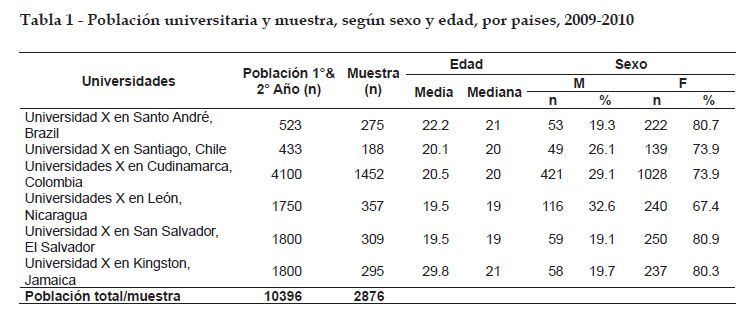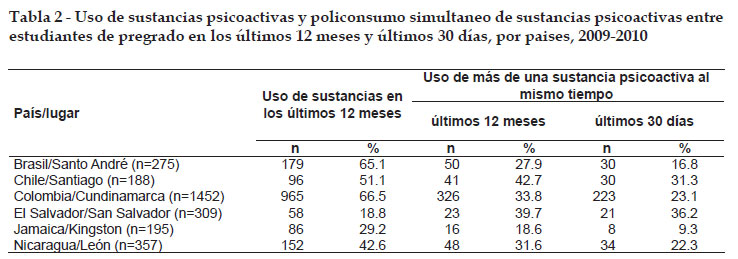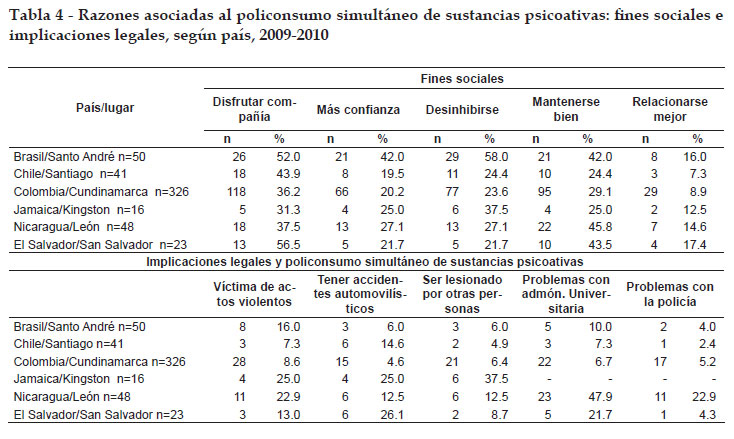The objective of this study was to understand patterns of simultaneous polydrug use of psychoactive substances and its gender, legal and social implications, among first and second year undergraduate students in health sciences/medical sciences faculties from six universities in five Latin American countries, Colombia, Nicaragua, Chile, Brazil, and El Salvador, and one Caribbean country, Jamaica. The study design was cross-sectional. The combinations of alcohol + tobacco and alchol + cannabis were the most frequently reported in all universities, with the exception of alcohol + tabaco in Jamaica. The factors associated to polidrug use most frequently mentioned were "to have unexpected sexual relationships" in the Brazilian university, "to have unprotected sex" in the universities of Chile, Colombia and Nicaragua, "to have problems with his o her sentimental partner" in the Jamaican university, and "to skip classes" in the university of El Salvador. Three environments were related, positively or negatively, with simultaneous polydrug use of psychoactive substances: academic, familiar and sexual behavioral.
Students; Behavior, addictive; Substance-related disorders; Risk factors; Street drugs; América Latina; Caribe




